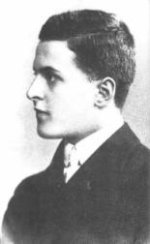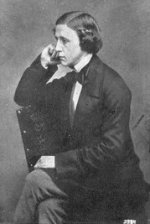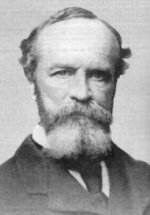If there is no God, then She cannot answer our prayers, even if we make them with all our heart. That seems intuitive. (Maybe God doesn’t answer prayers even if She does exist; but we can be sure that She doesn’t if there is no God.) Call this the God-Dependence of Prayer.
As it happens, I don’t pray. This is an empirically verifiable fact. Call this the Impiety Thesis.
But if we suppose that both the Impiety Thesis and the God-Dependence of Prayer are true, is that enough to prove that God does exist? That would seem awkward; especially for the impious, since it’s their very impiety that proves the existence of God. cabrutus (2006-02-09) and Scottish Nous (2006-02-12) think that it might. Let’s start with the following propositional constants:
G =def. God exists
P =def. I pray
A =def. God answers my prayers
We can formalize GDP by saying If God does not exist, then it’s not the case that God answers my prayers if I pray,
i.e., ~G !!!@@e2;2020;2019; ~(P !!!@@e2;2020;2019; A). We can formalize IT by saying It’s not the case that I pray,
i.e., ~P. Now here’s a formally valid argument from those two premises to prove that G, i.e., that God does exist:
- ~G !!!@@e2;2020;2019; ~(P !!!@@e2;2020;2019; A) (given: GDP)
- ~P (given: IT)
- ~P !!!@@e2;2c6;a8; A (logical addition 2)
- P !!!@@e2;2020;2019; A (material implication 3)
- ~~(P !!!@@e2;2020;2019; A) (double negation 4)
- ~~G (modus tollens 1, 5)
- G (double negation 6)
Therefore, God exists. Q.E.D., hosanna, and amen.
I’m pointing this argument out not because I think it’s convincing, but rather because Scott and cabrutus each pointed it out as a puzzle.
I think the puzzle is extremely easy, and that it simply wouldn’t exist for someone who hasn’t been drilled in the canons of 20th century propositional logic. (Which is not to say that there’s something deeply wrong about the canons of 20th century propositional logic, just that the training tends to have a few odd side-effects.) So here’s the solution, as I see it: we need to use the symbol !!!@@e2;2020;2019; to mean material implication (p!!!@@e2;2020;2019;q =def ~(p & ~q)) if we are going to make the step from premise 3 to premise 4. But if we’re consistently using the symbol !!!@@e2;2020;2019; to mean material implication, then premise 1 (GDP) is false, or rather, it’s false wherever premise 2 (IT) is true. But didn’t we agree above that the God-Dependence of Prayer seems intuitively true (whether I pray or not)? Yes, but that’s because we were thinking about what it intuitively means, before we formalize it into premise 1 using truth-functional logical operators. The following is intuitively plausible whether I pray or not:
If God does not exist, then it’s not the case that if I pray, my prayers will be answered.
The following, however, is not:
~G !!!@@e2;2020;2019; ~(P !!!@@e2;2020;2019; A)
… because that’s logically equivalent to:
~G !!!@@e2;2020;2019; (P & ~A)
… i.e., If God does not exist, then it’s true both that I pray to God and that my prayers are not answered.
Material implication, by definition, can only be false when the antecedent is true and the consequent is false, so denying a material implication is the same as affirming, among other things, the antecedent. But there is no reason to believe that if God does not exist, then it’s true both that I pray to God and that my prayers are not answered
unless I do, in fact, pray to God. If I don’t, then I pray to God materially implies that my prayers are answered
is true–as is I pray to God materially implies that my prayers are not answered
–a false statement materially implies all statements. (There is some reason to believe If it’s true both that God does not exist and I pray to God, then my prayers are not answered,
i.e. (~G & P) !!!@@e2;2020;2019; ~A. But that’s logically equivalent to ~G !!!@@e2;2020;2019; (P !!!@@e2;2020;2019; ~A), not ~G !!!@@e2;2020;2019; ~(P !!!@@e2;2020;2019; A).)
The problem here is that we take GDP to be plausible because when we say If God does not exist, then it’s not the case that if I pray, God will answer my prayers,
we’re reading the if-then
nested in the consequent to express something like a logical entailment, or a causal connection, or a counterfactual conditional, all of which can fail to be true without the antecedent being true. (The counterfactual if I were the King of England, I would be very poor
is false; if I were the King of England, I would be very rich. But I am the King of England
does materially imply I am very poor
; I am the King of England
is false, and a false statement materially implies all other statements.) The solution, then, is simply to point out that if !!!@@e2;2020;2019; is being consistently used to express material implication, then 1 is false, and only seemed to be true because we formalized GDP incorrectly. And if !!!@@e2;2020;2019; is not being used consistently to express material implication, then the attempt to infer 6 from 1 and 5 commits a fallacy of equivocation.
I point this out because I think the fact that it even seemed like an interesting puzzle to modern philosophers is itself interesting. I suspect that if you walked someone through the argument who hasn’t been drilled in introductory modern logic, or who doesn’t remember the drilling very well (those of you who haven’t, or don’t, can correct me if I’m wrong), they’d object at the step from 3 to 4 (from It’s true that I don’t pray or that God answers my prayers
to If I pray then God answers my prayers
), and the only justification we could give is by drawing out a truth-table for material implication and asking them to accept, on stipulation, that that’s what we mean by If-then.
That’s because material implication is a logically useful notion, but (deliberately!) leaves out a lot of what’s meant when we say If this is true, then something else is true.
The danger is that we have a distinct tendency to start by meaning what we mean by an ordinary language if-then, and end up formalizing it with material implication, and then shaking our head at the results.
As a historical side note, back in 1894, Lewis Carroll (yes, that Lewis Carroll) wrote an article on logic for Mind, in which he pointed out A Logical Paradox
involved in nested hypotheticals of the form If C is true, then if A is true, B is not true
(C !!!@@e2;2020;2019; (A !!!@@e2;2020;2019; ~B)), when combined with a second premise that If A is true, B is true
(A !!!@@e2;2020;2019; B). You can read through the paradox (and accompanying vignette about three barbers) yourself; the reason I mention it here is because modern logicians would tend to be baffled that anyone ever found this puzzling at all: Carroll’s paradox is easily dissolved if you interpret hypotheticals according to the modern notion of material implication. In particular, Carroll suggests the following two very interesting questions
in connection with his argument: Can a Hypothetical, whose protasis is false, be regarded as legitimate?
and Are two Hypotheticals, of the forms If A then B
and If A then not-B, compatible?
Most modern logicians would instinctively answer Yes; in fact, it’s always true,
and Yes, as long as A is false,
because if you read the If A then B
as material implication (as modern logicians have been drilled to do), then If A then B
is just logically equivalent to It’s not the case that both A is true and B is false,
which can be true (indeed, always is true) when A is false, and, as long as A is false, is also perfectly compatible with It’s not the case that both A is true and B is not false.
Once you admit both of these two answers, Carroll’s paradox disappears, apparently as nothing more than a relic of an obsolete method of logic and its primitive unclarity about implication. (Carroll, of course, could not be blamed, since the notion of material implication wasn’t current in English mathematical logic until it was introduced by Bertrand Russell a decade or so later, after Carroll had already shuffled off this mortal coil.)
But — to come back to the point, somewhat — solving one technical puzzle is no guarantee that you’ve solved them all, and in this case it turns out that training in the solution that makes it instinctively easy to dismiss the Carroll paradox (based on A !!!@@e2;2020;2019; (B !!!@@e2;2020;2019; ~C)), makes it instinctively hard to see why you should dismiss the Impiety Paradox here (based on A !!!@@e2;2020;2019; ~(B !!!@@e2;2020;2019; C)). Hammers are good for pounding in nails, but there is always the danger that they will make everything look like a nail, when in fact the world is full of strange and un-nail-ish things. In light of that, it may be a lot less easy to dismiss logical paradoxes as mere obsolete artefacts of primitive logical notation than some philosophers in the last century thought. It is certainly the case that Carroll’s questions about Hypotheticals remain very interesting questions
after all this time, in spite of the supposed march of technical progress in logic:
Several very interesting questions suggest themselves in connexion with this point, such as
Can a Hypothetical, whose protasis is false, be regarded as legitimate?
Are two Hypotheticals, of the forms If A then B
and If A then not-B,
compatible?
What difference in meaning, if any, exists between the following Propositions?
- A, B, C, cannot be all true at once;
- If C and A are true, B is not true;
- If C is true, then, if A is true, B is not true;
- If A is true, then, if C is true, B is not true.
–Lewis Carroll (1894), A Logical Paradox, ¶Â¶ 49–56



 Lewis Carroll,
Lewis Carroll, 